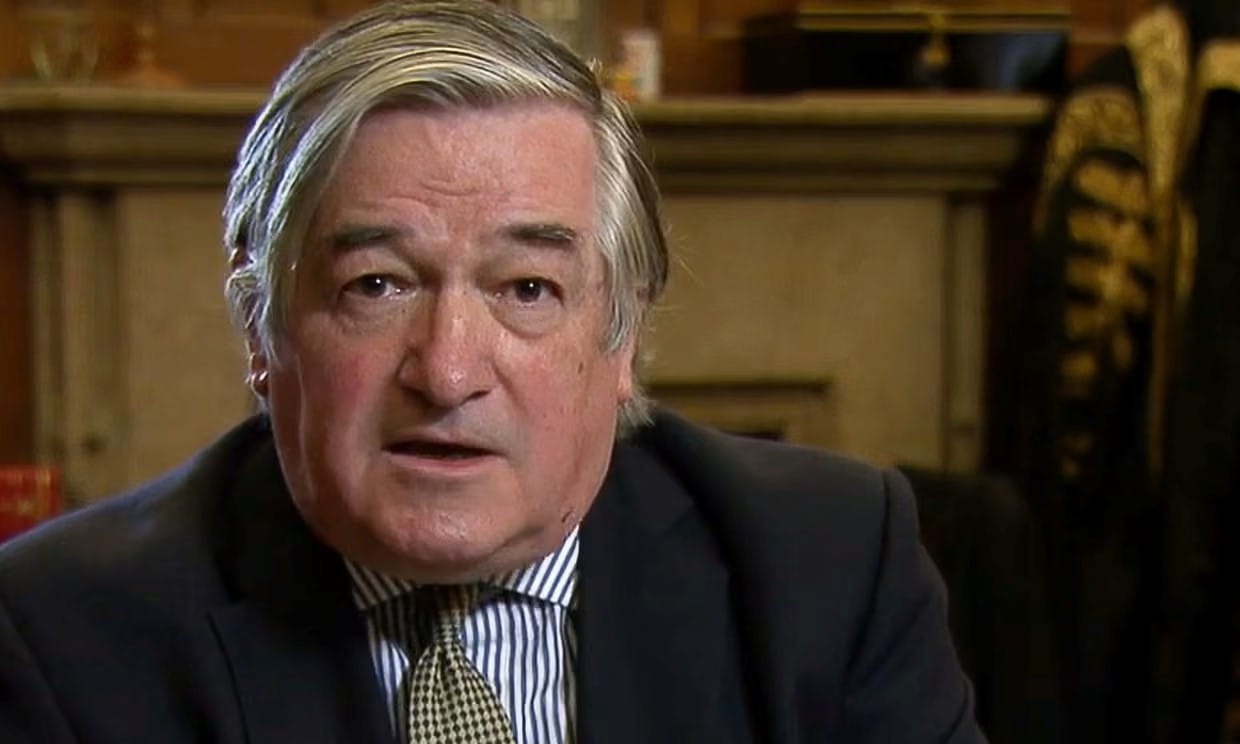Collardeau v Fuchs [2025] EWFC 307
Poole J. Enforcement and variation: the court quantified arrears, discharged and capitalised the respondent husband's mortgage undertaking, replaced multiple undertakings with quantified periodical payments, and ordered immediate enforcement where H frustrated a sealed final financial remedy order.
Judgment date: 24 September 2025
https://caselaw.nationalarchives.gov.uk/ewfc/2025/307
Poole J. Enforcement and variation: The court quantified arrears, discharged and capitalised the respondent husband's mortgage undertaking (£11,039,684), replaced multiple undertakings with quantified periodical payments (£152,065.25 per month), and ordered immediate enforcement where H frustrated a sealed final financial remedy order.
Facts
The applicant wife (W) and the respondent husband (H) were involved in long-running financial remedy and enforcement proceedings, with judgments to date at [1]. Notably, Mostyn J had earlier made a maintenance pending suit (MPS) order and, on 28 June 2023, a Final Order giving effect to a pre-nuptial agreement. The Final Order required H to transfer specified properties, to pay a lump sum of £18,964,027, and to give continuing undertakings (mortgages, overheads, staff costs, medical insurance). W was granted exclusive occupation of the West London family home (‘WLH’) until the youngest child turned 21 (2039). Implementation depended on payment of the lump sum and completion of transfers; [7(a)].
H failed to perform substantial obligations: he did not pay the lump sum; from March 2024 he ceased paying the WLH mortgage and other mortgages, overheads, staff costs, and maintenance. He arranged transfers and entered commercial arrangements that charged assets (promissory note; pledge) and signed an affidavit of confession of judgment. He transferred Montfort into his sole name. He sold Meadow Lane (‘ML1’) and the Miami penthouse, stating he paid the net proceeds to a third party. His disclosure and engagement were sporadic and limited. The court found this conduct was designed to frustrate enforcement orders previously made by Gwynneth Knowles J; [9].
W therefore applied on 25 March 2025 for enforcement and variation of the Final Order. Central disputed matters included the quantification of arrears, whether the court should vary the Final Order under s 31 of the Matrimonial Causes Act 1973 (MCA 1973) and/or by the equitable Thwaite jurisdiction to capitalise obligations given undertakings remained executory, and what further enforcement steps were appropriate.
Issues
- Quantification: What sums were owing by H under the Final Order and subsequent enforcement orders (outstanding lump sum, interest, costs, MPS arrears, overdue mortgage, overheads, staff costs and other breaches)? [16(a)]
- Variation: Whether the court should exercise its statutory power (s 31 MCA 1973) and/or the equitable Thwaite jurisdiction to:
- discharge H’s undertaking to pay the WLH mortgage and replace it with a capitalised lump sum; and
- replace other undertakings by quantified periodical payments and/or capitalisation (overheads, staff costs, medical insurance); [16(b)].
- Capitalisation of Consequential Losses: Whether non-legal consequential losses claimed by W should be capitalised as part of any variation; [16(b)(iii)].
- Ability to Pay: Whether H retained the means and capacity to pay the sums ordered; [16(c)].
- Enforcement: What further enforcement measures should be ordered (sales, application of proceeds, receivership, forensic/accounting disclosure, committal)? [16(d)]
- Procedure and Evidence: Whether the Part 18 route adopted for variation should be permitted, and the extent to which H’s non-cooperation affected the available evidence; [12]–[14].
Reasoning
General approach and jurisdiction
The court analysed s 31 MCA 1973 (including s 31(7B) permitting supplemental lump sums) and confirmed the established approach that variation need not involve rehearing the entire matter but must consider all circumstances, with the children’s welfare paramount, and be proportionate.
Poole J applied the Thwaite line of authority: where a consent order remains executory and circumstances have significantly changed so that enforcement would be inequitable, the court has equitable power to vary. The two-stage test (significant change; inequity if not varied) governs application of that jurisdiction and was applied alongside the Duxbury capitalisation principles (Pearce and Vaughan); [40]–[44]. The court accepted that statutory and equitable routes can both authorise appropriate variation and capitalisation.
Applying these principles, Poole J found the requisite significant change: persistent non-compliance by H, imminent loss of the family home through repossession, failure to implement transfers, and non-payment of the lump sum justified consideration of variation to prevent the Final Order being defeated.
Quantification and evidential approach
H’s non-engagement caused evidential shortfalls (failed disclosure, portal not used). The court proceeded on the best available evidence, relying where appropriate on figures previously provided by H and accepted by Mostyn J as reasonable approximations, and on W’s uncontested evidence when cogent. The judge emphasised that the evidential disadvantage stemmed principally from H’s conduct.
The court made particular findings on offsets and credits (e.g. £1,000,000 already paid by H; proceeds of the Cotswolds and Antibes sales credited), rejected claims lacking documentary support (notably some staff credit-card heads), and quantified arrears where the balance of probabilities permitted. The court produced an aggregate schedule of liabilities.
Variation and capitalisation (WLH mortgage undertaking)
The court held both s 31 and the Thwaite jurisdiction could authorise discharge of the undertaking and substitution by a capitalised lump sum where fair and necessary. The judge adopted the orthodox two-stage approach: identify the level of periodical payments which in principle should continue, then capitalise by Duxbury unless special factors justify departure.
Given uncertainty about what future mortgage terms H would have secured, the judge adopted a pragmatic evidential rule of using the contemporaneous annual interest obligation as the best available proxy for likely future liability. After analysis, annual interest of £1,074,060 (as at 21 May 2025 / at hearing) was selected and capitalised to £11,039,684 by Duxbury. The choice was justified by evidential limitation caused by H’s obstruction and by the need for fair, enforceable relief to protect W and the children. The judge emphasised capitalisation’s aim of fairness and practicality.
The court refused capitalisation of claimed consequential non-legal losses for lack of admissible evidence and because those heads lay outside the Final Order or were not suitable for capitalisation under s 31/Thwaite.
Replacement of undertakings and periodical payments
The court discharged specified undertakings and replaced them with quantified periodical payments where appropriate. Annual liabilities were assessed for mortgages on other properties, overheads, staff costs, and medical insurance; these were converted into a revised monthly periodical payment fixed at £152,065.25 to cover the quantified obligations, with temporal limits tied to the youngest child’s 21st birthday where relevant.
The court produced an overall quantified position: as at 16 July 2025, the aggregate lump sum liability (including the capitalised WLH sum) was £31,344,267.63, together with the revised monthly periodical payments.
Assessment of means and proportionality
The court accepted evidence that H retained substantial means and capacity to pay (previous wealth disclosures and evidence of asset disposals). On that basis, the capitalisation and variation orders were practicable and proportionate.
Enforcement and practical relief
Given H’s history and the imminent forced sale of WLH, the court ordered immediate enforcement measures: direction that net proceeds of sale be applied in priority to W; sales of ML2 and other properties and artworks; permission for disclosure to forensic/accounting advisers; steps to add companies for receivership purposes; and refusal to stay enforcement absent realistic assurances. Certain issues (proceeds paid to third parties; committal) were reserved.
The judge concluded that variation and capitalisation combined with robust enforcement were necessary and proportionate to prevent H’s obstructive conduct from defeating the Final Order and to safeguard the children’s welfare.
Procedure, Part 18 and case management
H argued W’s variation application should have followed the standard financial remedies procedure (FPR 9.12–9.17) rather than Part 18. Poole J considered the point and the court’s case management powers. Under FPR 4.7 (error of procedure does not invalidate steps; court may remedy error) and FPR 4.1 (general case management powers and the overriding objective), the judge concluded that rectifying the procedural error and proceeding with the Part 18 application would avoid disproportionate delay and prejudice to W and the children. The court therefore dispensed with the standard procedure requirements and proceeded to hear the variation and enforcement applications as listed. The judge emphasised that H had known of the application for months and no procedural prejudice would ensue from remedying the error, given the pressing enforcement issues.
Held (orders and outcomes)
The court quantified outstanding liabilities and made the following principal orders:
- Outstanding lump sum and interest: £17,336,535.
- Costs and interest: £455,216.47.
- MPS and interest: £1,251,016.69.
- Overheads and staff arrears (WLH and other properties) and mortgages on other properties: £1,261,815.47.
- H’s undertaking to continue paying the WLH mortgage discharged and replaced by a capitalised lump sum of £11,039,684 (Duxbury equivalent of annual interest £1,074,060 until 2039).
- Periodical payments varied so H must pay £152,065.25 per month to cover specified quantified obligations (overheads, staff, other mortgages, medical insurance), subject to temporal limits (payments for the London home to cease on the youngest child’s 21st birthday).
- Aggregate total owing as at 16 July 2025 (including capitalised sum) recorded as £31,344,267.63, with continuing periodical obligations as varied.
- The court declined to capitalise claimed non-legal consequential losses for lack of satisfactory evidence.
- Immediate enforcement directions made (sales, application of proceeds in priority to W, disclosure to forensic/accounting advisers, preparatory receivership steps); stay of enforcement refused.
- Committal and some disputes regarding proceeds already paid to third parties were left for separate determination.





